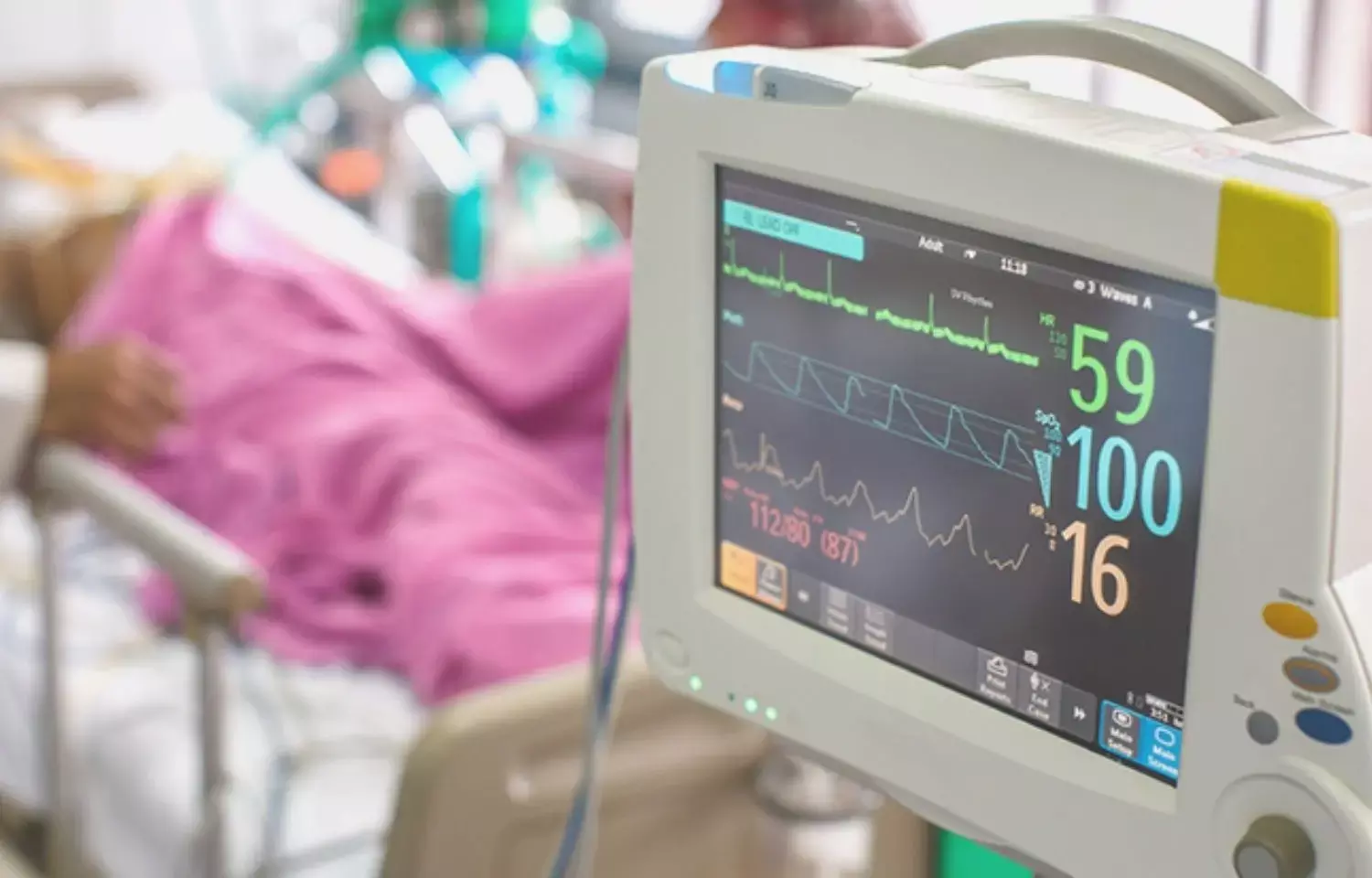- Home
- Medical news & Guidelines
- Anesthesiology
- Cardiology and CTVS
- Critical Care
- Dentistry
- Dermatology
- Diabetes and Endocrinology
- ENT
- Gastroenterology
- Medicine
- Nephrology
- Neurology
- Obstretics-Gynaecology
- Oncology
- Ophthalmology
- Orthopaedics
- Pediatrics-Neonatology
- Psychiatry
- Pulmonology
- Radiology
- Surgery
- Urology
- Laboratory Medicine
- Diet
- Nursing
- Paramedical
- Physiotherapy
- Health news
- Fact Check
- Bone Health Fact Check
- Brain Health Fact Check
- Cancer Related Fact Check
- Child Care Fact Check
- Dental and oral health fact check
- Diabetes and metabolic health fact check
- Diet and Nutrition Fact Check
- Eye and ENT Care Fact Check
- Fitness fact check
- Gut health fact check
- Heart health fact check
- Kidney health fact check
- Medical education fact check
- Men's health fact check
- Respiratory fact check
- Skin and hair care fact check
- Vaccine and Immunization fact check
- Women's health fact check
- AYUSH
- State News
- Andaman and Nicobar Islands
- Andhra Pradesh
- Arunachal Pradesh
- Assam
- Bihar
- Chandigarh
- Chattisgarh
- Dadra and Nagar Haveli
- Daman and Diu
- Delhi
- Goa
- Gujarat
- Haryana
- Himachal Pradesh
- Jammu & Kashmir
- Jharkhand
- Karnataka
- Kerala
- Ladakh
- Lakshadweep
- Madhya Pradesh
- Maharashtra
- Manipur
- Meghalaya
- Mizoram
- Nagaland
- Odisha
- Puducherry
- Punjab
- Rajasthan
- Sikkim
- Tamil Nadu
- Telangana
- Tripura
- Uttar Pradesh
- Uttrakhand
- West Bengal
- Medical Education
- Industry
Inhaled vasodilators nitric oxide and epoprostenol have similar outcomes in respiratory failure

Researchers have found in a new study that Inhaled vasodilators nitric oxide and epoprostenol have similar outcomes in acute respiratory failure. In other words initial inhaled vasodilator used for acute respiratory failure showed no variations in outcomes.
The new study has been published in Chest Journal.
In mechanically ventilated patients who have severe acute respiratory failure, the inhaled epoprostenol and vasodilator nitric oxide may be started to enhance oxygenation; however, practice patterns and head-to-head comparisons of efficacy are questionable. Nicholas A. Bosch and colleagues undertook this study in order to compare the efficacy of inhaled nitric oxide and epoprostenol in the treatment of severe acute respiratory failure.
Adult patients who were being mechanically ventilated and started on inhaled nitric oxide, epoprostenol, or both were discovered using a sizable United States database (Premier Healthcare Database). The efficacy of inhaled nitric oxide was compared to epoprostenol by restricting analysis to patients admitted to hospitals that exclusively employed either inhaled nitric oxide or epoprostenol, taking advantage of the considerable hospital diversity in the choice of first inhaled vasodilator.
The key findings of this study were as follows:
1. Among 11,200 patients (303 institutions), 6,366 (56.8%) had nitric oxide breathed first, 4,720 (42.1%) had epoprostenol inhaled first, and 114 (1.0%) had both therapies on the same day.
2. 104 hospitals (34.3%; 1,666 patients) utilized nitric oxide solely, whereas 118 hospitals (38.9%; 1,812 patients) used epoprostenol entirely.
3. There were no differences in the risk of successful extubation between patients treated at nitric oxide-only hospitals and those admitted to epoprostenol-only hospitals (sub-distribution hazard ratio 0.97, 95% confidence interval 0.80-1.18).
4. There were no changes in overall hospital expenses or mortality rates.
5. Multiple sensitivity studies yielded consistent results.
Reference:
Bosch, N. A., Law, A. C., Vail, E. A., Gillmeyer, K. R., Gershengorn, H. B., Wunsch, H., & Walkey, A. J. (2022). Inhaled nitric oxide versus epoprostenol during acute respiratory failure: an observational target trial emulation. In Chest. Elsevier BV. https://doi.org/10.1016/j.chest.2022.08.001
Neuroscience Masters graduate
Jacinthlyn Sylvia, a Neuroscience Master's graduate from Chennai has worked extensively in deciphering the neurobiology of cognition and motor control in aging. She also has spread-out exposure to Neurosurgery from her Bachelor’s. She is currently involved in active Neuro-Oncology research. She is an upcoming neuroscientist with a fiery passion for writing. Her news cover at Medical Dialogues feature recent discoveries and updates from the healthcare and biomedical research fields. She can be reached at editorial@medicaldialogues.in
Dr Kamal Kant Kohli-MBBS, DTCD- a chest specialist with more than 30 years of practice and a flair for writing clinical articles, Dr Kamal Kant Kohli joined Medical Dialogues as a Chief Editor of Medical News. Besides writing articles, as an editor, he proofreads and verifies all the medical content published on Medical Dialogues including those coming from journals, studies,medical conferences,guidelines etc. Email: drkohli@medicaldialogues.in. Contact no. 011-43720751


